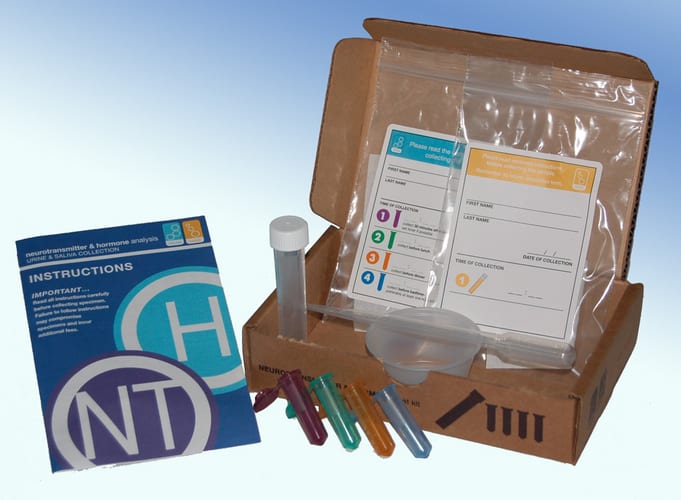
FREE SHIPPING TO U.S. AND PUERTO RICO FOR ALL ORDERS $100 AND OVER!
We are unable to accept returns on any products or test kits. All sales are final.
By visiting our site, you agree to our privacy policy regarding cookies, tracking statistics, etc. Read more
FREE SHIPPING TO U.S. AND PUERTO RICO FOR ALL ORDERS $100 AND OVER!
We are unable to accept returns on any products or test kits. All sales are final.
FREE SHIPPING TO U.S. AND PUERTO RICO FOR ALL ORDERS $100 AND OVER!
We do not currently ship internationally.

Acute fatigue is considered to be a normal part of life. Tiredness is well known to all of us and, if you are healthy, it is usually linked to a single cause, serves a protective role, and is alleviated by rest or simple lifestyle changes.
If such fatigue lasts six months or more, it is considered chronic and abnormal. Fatigue can be a stand-alone disorder unto itself that deserves evaluation and treatment, or it can be a prominent part of a variety of chronic disorders.
Whether your lack of energy stems from everyday stress or is an associated symptom of a larger health issue, at Integrative Psychiatry, treatment begins with improving your diet, activity levels, and ability to relax.
So, how can you increase your energy?
Skipping meals is one of the worst things you can do for your body. When you’re hungry, your blood sugar drops, stressing your adrenal glands and triggering your sympathetic nervous system. That causes light-headedness, cravings, anxiety, and fatigue.
If you start each morning with a good breakfast and “graze” healthfully every two to four hours, not only will your blood sugar will remain steady throughout the day but you’ll also feel more rested and energetic.
Eat Complex carbohydrates such as brown rice. Avoid sugar, junk food, white pasta, white rice, and white bread.
Coffee and sodas overstimulate your adrenals and they deplete important B vitamins. Coffee does not give you energy; coffee gives you the illusion of energy. Coffee actually drains the body of energy and makes you more tired, because of vitamin and adrenal depletion.
Try walking, yoga, or stretching. Avoid vigorous or aerobic exercise because it further depletes the adrenal system.
Nicotine in tobacco, for example, initially raises cortisol levels, but chronic use results in low DHEA, testosterone, and progesterone levels.
Learn relaxation techniques such as deep breathing, visualization, progressive muscle relaxation and meditation.
To maintain high energy levels the use of natural supplements is helpful.
If these simple lifestyle changes don’t fully relieve your fatigue, neurotransmitter, hormone and adrenal testing can be done to help inform what other steps can be taken to relieve the fatigue.

NeuroHormone Complete Panel Neurotransmitter, Hormone, Adrenal Test
$379.00
A growing body of research data strongly suggests that fatigue is caused by faulty regulation of your body’s stress system. In other words, fatigue and its related symptoms are the results of imbalances among your neurotransmitters, hormones, adrenal output, and immune function.
One theory suggests an increased ratio of serotonin to dopamine is associated with lethargy and feelings of tiredness. This is consistent with the clinical observation that serotonin-dominant antidepressants such as SSRIs and most SNRIs cause or worsen fatigue.
Another consistent research finding associated with fatigue is the low adrenal output of cortisol. Insufficient cortisol has been associated with increased inflammation, fatigue, sleepiness, pain, and malaise.
Fatigue has also been found to be related to over-activation of your “fight or flight” neurotransmitters (norepinephrine and epinephrine) and under activation of your “rest and digest” neurotransmitter acetylcholine.
As you can see, the nature of fatigue, with its many biological and behavioral aspects, is complex.

Dr. David Scheiderer MD, MBA, DFAPA, is the Chief Medical Officer and Director of Education for Integrative Psychiatry, Inc.
An accomplished clinician, educator, and lecturer, Dr. Dave has established himself as a key opinion leader in the fields of both mainstream psychiatry and functional medicine. Dissatisfied with the patient outcomes using only conventional treatments, he began treating his patients by addressing biological imbalances with lifestyle improvements, nutrition and nutraceuticals to get better outcomes. His integrative approach provided much improved results. Dr. Dave is passionate about helping the community he serves by personalizing treatments and educating the public about mental health and healthy aging. He has formulated several of our supplements and sat on the advisory board for many others, ensuring the products we carry are based on science and experience and have the best efficacy rates and highest ingredient quality available.
This site is protected by reCAPTCHA and the Google Privacy Policy and Terms of Service apply.